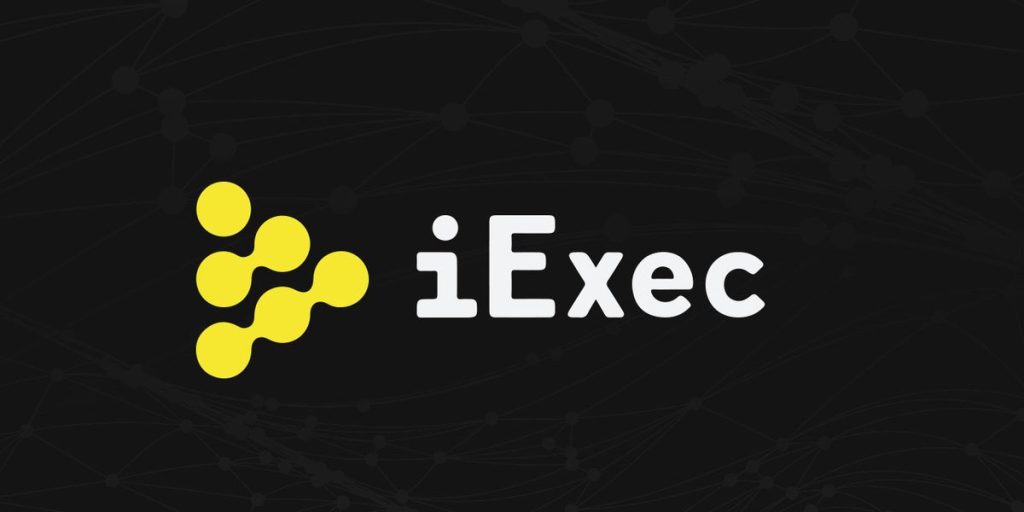In the rapidly expanding world of cryptocurrency and blockchain technology, various tokens and coins serve unique purposes within their respective ecosystems. One such token is RLC, which stands for “Run on Lots of Computers.” RLC is the native utility token of iExec, a decentralized cloud computing platform. iExec aims to revolutionize the cloud computing industry by providing a decentralized, blockchain-based marketplace for computing resources. This article delves into what RLC is, its purpose, how it works, and its potential impact on the future of cloud computing and the broader crypto ecosystem.
Understanding iExec and RLC
iExec is a pioneering project in the field of decentralized computing. It was launched with the vision of creating a market for decentralized computing resources, where users can rent out their spare computing power or purchase computing resources from others. This concept is similar to traditional cloud computing services but operates in a decentralized manner, leveraging blockchain technology to ensure transparency, security, and trustlessness.
The RLC token is at the heart of the iExec ecosystem. It is used as the medium of exchange on the platform, facilitating transactions between buyers and sellers of computing power. RLC enables users to access the network’s resources, pay for computing tasks, and reward participants within the ecosystem.
How RLC Works
RLC operates on the Ethereum blockchain, utilizing smart contracts to automate the buying and selling process of computing resources. When a user needs computing power for tasks such as CGI rendering, scientific calculation, or even machine learning operations, they can use RLC tokens to pay for these services on the iExec marketplace. Conversely, those who have unused computing power can earn RLC tokens by offering their resources to the network.
The platform employs a secure and transparent mechanism for matching demand with supply, ensuring that transactions are completed efficiently and fairly. The use of blockchain technology not only facilitates trust among participants but also enables a level of flexibility and scalability that traditional cloud computing models cannot offer.
The Potential Impact of RLC
RLC and iExec represent a significant shift in how computing resources are distributed and utilized. By democratizing access to computing power, iExec has the potential to lower costs, increase efficiency, and foster innovation across various industries. For example, small enterprises and individual developers can access the same level of computing resources as large corporations, leveling the playing field and encouraging the development of new applications and services.
Furthermore, the decentralized nature of iExec and the use of RLC tokens can enhance security and privacy. Since computing tasks are distributed across multiple nodes, the risk of centralized points of failure is minimized, and users have greater control over their data.
RLC is more than just another cryptocurrency; it represents a fundamental component of iExec’s vision for a decentralized, democratized computing marketplace. As the demand for computing resources continues to grow, driven by advancements in areas like artificial intelligence, big data, and the Internet of Things (IoT), the role of technologies like RLC in facilitating accessible, secure, and efficient computing solutions cannot be overstated. With its innovative approach to leveraging blockchain technology for cloud computing, RLC is poised to play a crucial role in shaping the future of the digital world.
The Evolution and Future Prospects of RLC
The journey of RLC and iExec highlights an evolving narrative within the blockchain and cryptocurrency space, where the focus is increasingly shifting towards practical, real-world applications of the technology. As RLC continues to establish its position as a key player in the decentralized cloud computing market, several factors will influence its trajectory and potential impact on the industry.
Technological Advancements and Integration
The success of RLC hinges on continuous technological innovation and the seamless integration of its platform with existing cloud computing infrastructures and blockchain ecosystems. iExec is committed to enhancing its protocols, ensuring scalability, and reducing transaction costs, which are critical for attracting users and retaining competitiveness. The integration of privacy-preserving technologies and secure, off-chain computing solutions also stands as a priority to address potential security concerns and ensure compliance with data protection regulations.
Community and Developer Engagement
The growth of the RLC ecosystem relies significantly on the active involvement of developers, users, and stakeholders. By fostering a vibrant community, iExec can encourage the development of new applications, drive user adoption, and stimulate network activity. Initiatives such as developer grants, hackathons, and partnerships with academic institutions can accelerate innovation and usage of the iExec platform, further entrenching RLC’s utility within the crypto and tech communities.
Market Adoption and Use Cases
The real test for RLC’s success will be its adoption across various industries and use cases. Beyond the tech and crypto sectors, industries such as healthcare, finance, and entertainment stand to benefit from decentralized computing solutions. For instance, leveraging RLC for secure, distributed data processing can revolutionize medical research, financial modeling, and digital content creation. The ability of iExec to secure partnerships with businesses and organizations in these fields will be crucial for its long-term viability and the broader acceptance of RLC.
Regulatory Environment
As with any innovation in the blockchain space, the regulatory environment poses both challenges and opportunities for RLC. Navigating the complex landscape of global regulations regarding cryptocurrencies and decentralized technologies is essential for iExec. Compliance with legal standards can foster trust among users and partners, opening up more avenues for adoption and collaboration. Conversely, adverse regulatory developments could pose significant hurdles, underscoring the importance of proactive engagement with policymakers and regulatory bodies.
In conclusion, RLC represents a groundbreaking approach to cloud computing, challenging traditional paradigms with its decentralized, blockchain-based model. As the platform continues to evolve, the interplay between technological innovation, community engagement, market adoption, and regulatory compliance will determine its place in the future of computing and the broader digital economy. With its unique value proposition and the growing recognition of blockchain’s potential to transform industries, RLC is well-positioned to lead the charge towards a more accessible, secure, and efficient computing future.







